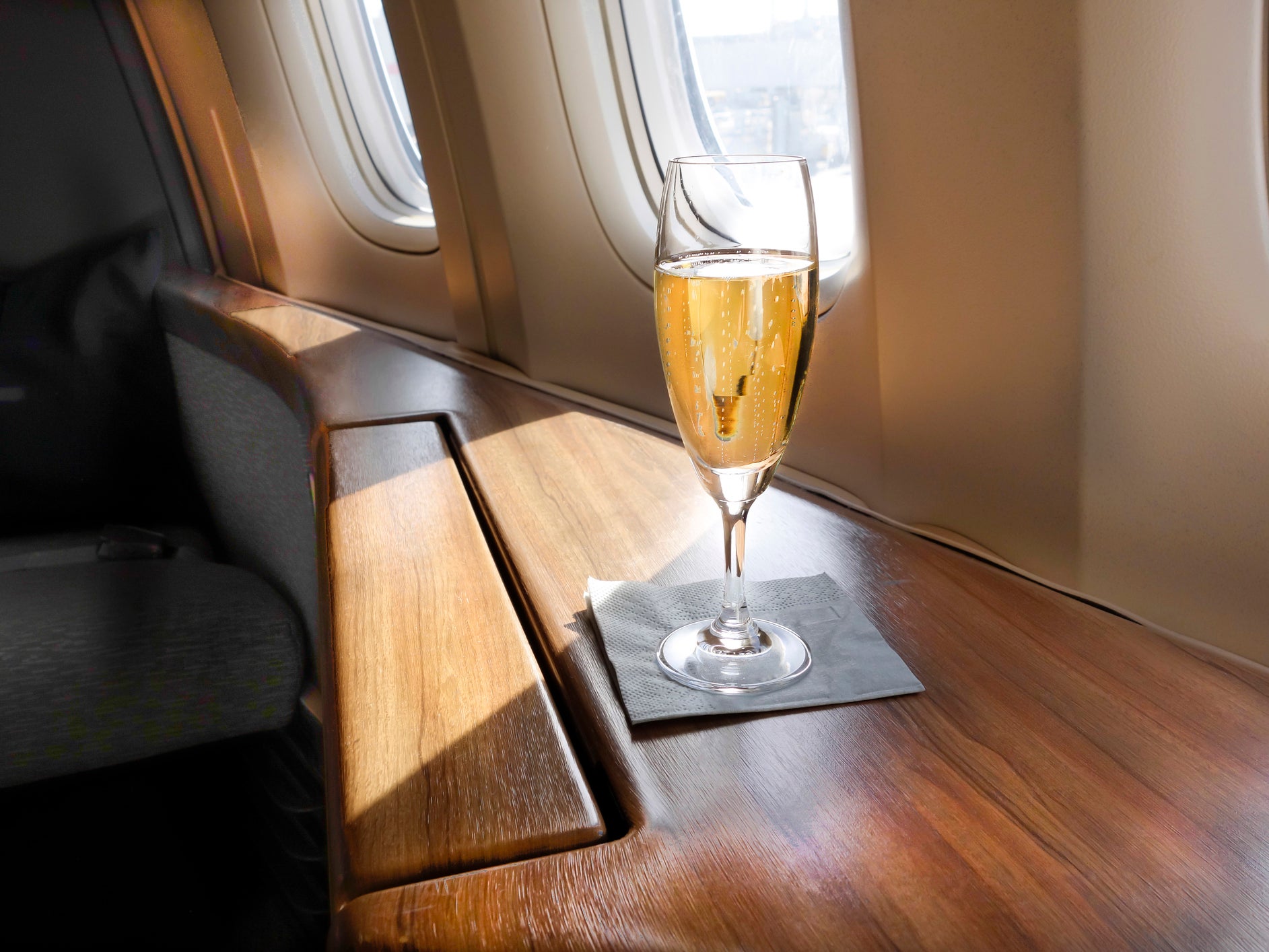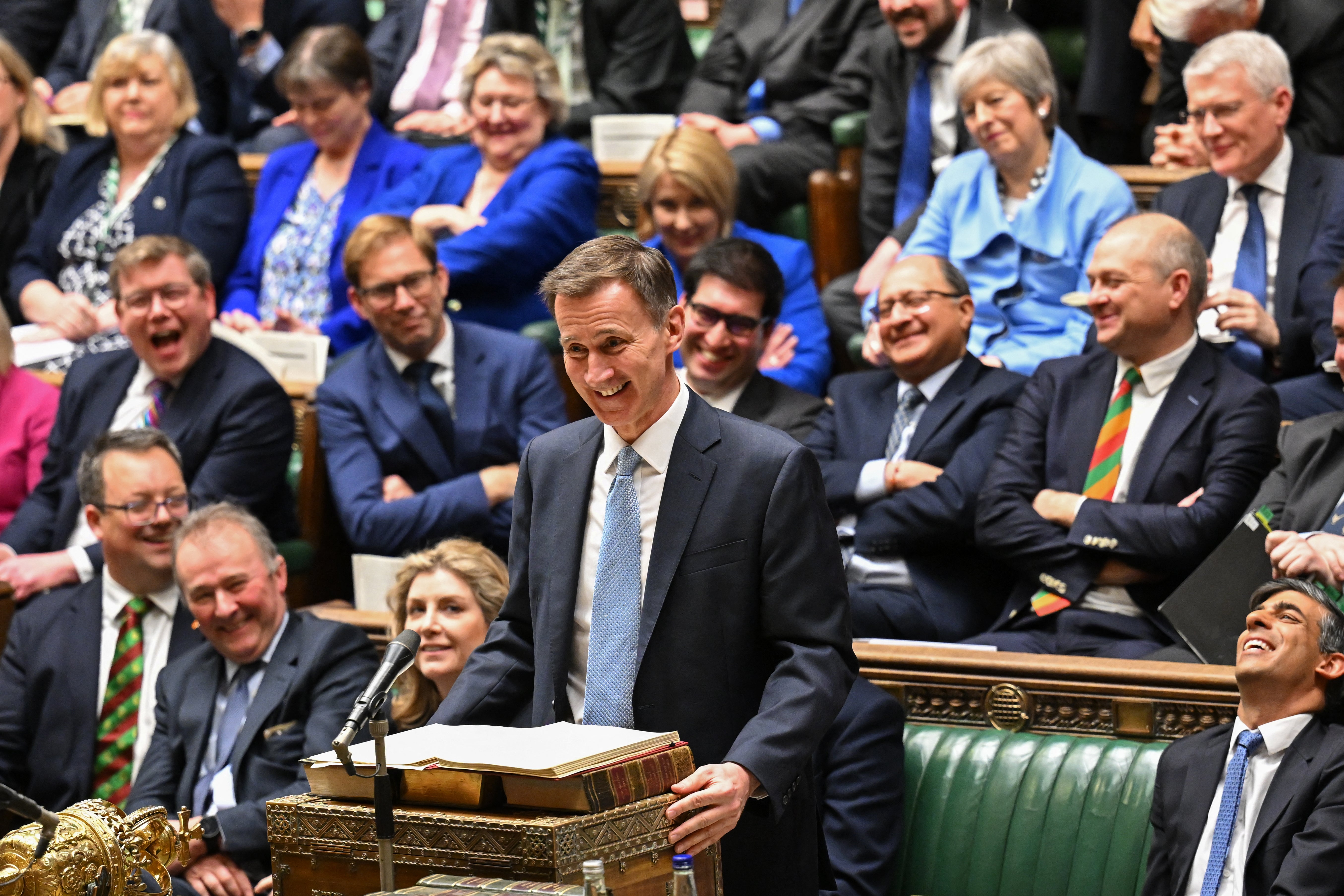Passengers flying first class to be hit by tax rise in Budget
The announcement was described as ‘another tax on British businesses’

Your support helps us to tell the story
This election is still a dead heat, according to most polls. In a fight with such wafer-thin margins, we need reporters on the ground talking to the people Trump and Harris are courting. Your support allows us to keep sending journalists to the story.
The Independent is trusted by 27 million Americans from across the entire political spectrum every month. Unlike many other quality news outlets, we choose not to lock you out of our reporting and analysis with paywalls. But quality journalism must still be paid for.
Help us keep bring these critical stories to light. Your support makes all the difference.
Airline passengers in premium and first-class cabins will be hit by a tax hike, it has been announced.
Chancellor Jeremy Hunt announced a “one-off adjustment” to the level of air passenger duty (APD) for those with non-economy tickets, such as premium economy, business class and first class.
In his Budget speech, Mr Hunt said the measure will “account for high inflation in recent years”.
APD for passengers in premium cabins on departures from UK airports currently ranges from £13 to £200 based on the distance of the flight.
Clive Wratten, chief executive of the Business Travel Association industry body, said: “The introduction of an increase in non-economy air passenger duty is disastrous for the economic welfare and wellbeing of British businesses and their employees.
“Contrary to common misconceptions, business travel is not just for the wealthy.
“This tax will hinder growth for small and medium enterprises through limiting international collaboration opportunities.
“It will hit charities, academics and researchers alongside businesses of all sizes combating rising costs in every area.
“There is no mechanism for ensuring that the monies from this tax will go into innovation in the airline sector nor into sustainable aviation fuels.
“This is therefore just another tax on British businesses.”

The PA news agency has asked the Treasury for details of the increase.
Elsewhere in the Budget The Chancellor confirmed that the 5p per litre cut implemented in March 2022 will be retained for another 12 months, and fuel duty will not increase in line with inflation.
This will save the average car driver £50 next year and bring “total savings since the 5p cut was introduced to around £250”, Mr Hunt said.
When the fuel duty cut was first announced, it was expected to save car drivers £100 annually.
A Treasury spokesperson said the reduction is due to the fall in the price of fuel.
Government figures show the average cost of a litre of petrol and diesel at UK forecourts is around £1.45 and £1.55 respectively.
Prices reached record highs of £1.92 for petrol and £1.99 for diesel in July 2022, largely due to Russia’s invasion of Ukraine leading to an increase in the cost of oil.